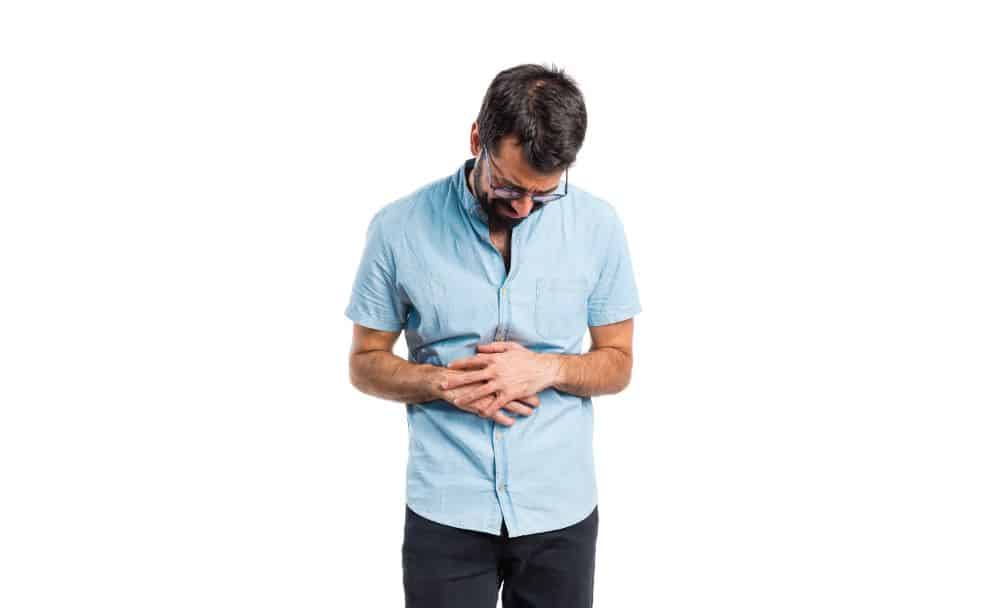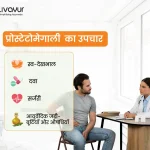This article is reviewed by an expert

Diarrhea also known as Atisara in Ayurveda is a common condition that affects millions of people worldwide. It is characterised by loose or watery stools that occur more frequently than usual. The condition can be caused by a variety of factors, including infections, medications, and certain medical conditions. [1] [2] In this article, we will provide an overview of diarrhea, its causes, symptoms, diagnosis, and treatment options.
Overview of Diarrhea
Diarrhea is a condition that involves the frequent passage of loose or watery stools. It can be acute, meaning it comes on suddenly and lasts for a short period of time, or chronic, meaning it persists for an extended period of time. Acute diarrhea is a common condition that typically lasts for a few days and is usually caused by an infection. Chronic diarrhea, on the other hand, can be caused by a variety of factors, including inflammatory bowel disease, food intolerances, and other medical conditions. [1] [3]
According to Ayurveda, digestion is a complex process that involves the interaction of several bodily tissues and functions. The digestive fire or Agni is responsible for breaking down food into its various components, which are then absorbed by the body. When the digestive fire is weakened or disrupted, it can lead to the accumulation of toxins and undigested food in the body, causing a variety of digestive symptoms, including diarrhea. [2] [4]
Causes of Diarrhea
There are several different factors that can cause diarrhea. Some of the most common causes include:
Infections: Diarrhea is often caused by bacterial, viral, or parasitic infections. These infections can be transmitted through contaminated food or water, or through contact with an infected individual. [5]
Medications: Certain medications can cause diarrhea as a side effect. Antibiotics, for example, can disrupt the natural balance of bacteria in the gut and lead to diarrhea. [5]
Medical Conditions: Certain medical conditions can also cause diarrhea. Inflammatory bowel disease, celiac disease, and irritable bowel syndrome are all conditions that can cause chronic diarrhea. [5]
Food Intolerances: Some people may experience diarrhea after consuming certain foods that they are intolerant to. This can include lactose intolerance, where the body is unable to digest lactose, a sugar found in milk and other dairy products.[5]
Digestive Fire: When the digestive fire or Agni is weak, it can lead to incomplete digestion and the accumulation of toxins in the body, which can cause diarrhea. Emotional stress can disrupt the digestive fire and lead to the development of digestive symptoms, including diarrhea. [2] [4]
Symptoms of Diarrhea
The main symptom of diarrhea is the frequent passage of loose or watery stools. Other symptoms can include:
Abdominal cramps: Many people with diarrhea experience abdominal cramps or discomfort. [5]
Frequent/ Loose Stools: Diarrhea is characterized by the frequent passage of loose or watery stools. [5]
Nausea: Some people with diarrhea may also experience nausea or vomiting especially when the underlying cause is an infection. [5]
Fever: If the diarrhea is caused by an infection, the person may also have a fever. [5]
Dehydration: Diarrhea can cause dehydration, which can lead to symptoms such as dry mouth, thirst, and dark urine. [5]
Diagnosis of Diarrhea
Diagnosis of diarrhea will typically involve a physical examination and a review of the person’s medical history. The doctor may also order certain tests to help determine the underlying cause of the diarrhea. These tests can include:
Stool tests: A stool test can help identify the presence of bacteria, viruses, or parasites in the stool. [6]>/a>
Blood tests: Blood tests can help determine if the person has an infection or other medical condition that may be causing the diarrhea. [6]
Imaging tests: In some cases, the doctor may order imaging tests, such as an ultrasound or CT scan, to help identify any abnormalities in the digestive system. [6]
Treatment of Diarrhea from a Modern Medication Perspective
Treatment of diarrhea will depend on the underlying cause of the condition. In many cases, acute diarrhea will resolve on its own within a few days. However, there are some steps that can be taken to help manage the symptoms of diarrhea and prevent dehydration. These can include:

Fluids: Drinking plenty of fluids, such as water, clear broths, or fruit juices, can help prevent dehydration. [7]
Oral rehydration solutions: These solutions can help replace lost electrolytes and fluids and are recommended for people with moderate to severe diarrhea. [7]
Rest: Resting can help the body recover from the infection or condition that is causing the diarrhea. [7]

Herbal Remedies: Herbal remedies, such as ginger, cumin, and fennel, can be used to help improve digestion and reduce inflammation in the gut. [4] [8]
Panchakarma: Panchakarma is a series of Ayurvedic treatments that are designed to cleanse and detoxify the body. These treatments can be especially beneficial for patients with chronic diarrhea or those who have a weakened digestive system.[9]
Medications: Depending on the underlying cause of the diarrhea, the doctor may prescribe medications to help manage the symptoms or treat the infection. [7]
Dietary Changes: In some cases, dietary changes may be necessary to manage the symptoms of diarrhea. This can include avoiding foods that are known to trigger diarrhea or increasing the intake of foods that are known to help alleviate diarrhea like probiotics. [7]
Preventing Diarrhea
There are several steps that can be taken to help prevent diarrhea. These can include:

Practising Good Hygiene: Washing hands thoroughly with soap and water before and after handling food, after using the bathroom, and after changing a diaper(in babies and small children) can help prevent the spread of infections that can cause diarrhea. [7]
Avoiding Contaminated Food and Water: Consuming contaminated food or water can lead to infections that can cause diarrhea. It is important to only consume food and water that is clean and safe to drink.[7]
Getting Vaccinated: Vaccines are available for certain infections that can cause diarrhea, such as rotavirus and cholera.[7]
Taking Antibiotics Properly: Antibiotics should only be taken as prescribed by a doctor and should never be shared with others. Taking antibiotics unnecessarily can disrupt the natural balance of bacteria in the gut and lead to diarroea.[7]
Herbal Supplements: Taking herbal supplements, such as Triphala or aloe vera, can help to maintain a healthy digestive system and reduce the risk of diarrhea. [10]
It is important to note that these treatments can only be taken along with conventional treatments for Diarrhea to complement the management of Symptoms and are not substitutes for modern medicine.
FAQs
Q: What is acute diarrhea?
A: Acute diarrhea is a sudden onset of diarrhea that usually lasts for a few days or weeks. It is most commonly caused by a viral or bacterial infection.
Q: What is chronic diarrhea?
A: Chronic diarrhea is diarrhea that lasts for more than four weeks. It can be caused by a variety of factors, including infections, medications, and certain medical conditions.
Q: Can diarrhea lead to dehydration?
A: Yes, diarrhea can lead to dehydration, especially if it is severe or prolonged. It is important to stay hydrated by drinking plenty of fluids and consuming electrolyte solutions, especially for children and the elderly.
Q: What should I do if I have bloody diarrhea?
A: Bloody diarrhea can be a sign of a more serious underlying condition and should be evaluated by a doctor. It is important to seek medical attention if you have bloody diarrhea or any other concerning symptoms.
Q: Can certain foods cause diarrhea?
A: Yes, certain foods can trigger diarrhea in some people, especially those with food intolerances or sensitivities. It is important to identify any foods that may be causing diarrhea and avoid them if necessary.
Q: How can I prevent diarrhea while travelling?
A: To prevent diarrhea while travelling, it is important to practice good hygiene, such as washing your hands frequently, avoiding contaminated food and water, and getting vaccinated if necessary.
Q: When should I see a doctor for diarrhea?
A: You should see a doctor if you have diarrhea that lasts for more than a few days, if you have severe or bloody diarrhea, if you have signs of dehydration, or if you have any other concerning symptoms.
Conclusion
Diarrhea is a common condition that can be caused by a variety of factors, including infections, medications, and certain medical conditions. If you are experiencing symptoms of diarrhea, it is important to consult with a doctor to determine the underlying cause and receive appropriate treatment.
Disclaimer: This article is for general informational purposes only. Kindly seek the assistance of a trained medical practitioner for diagnosis and treatment before incorporating any of the mentioned remedies into your daily routine.
References:
- Diarrheal disease (who.int)
- Ayurvedic Management Of Atisara- A Case Study
- Definition & Facts for Diarrhea – NIDDK (nih.gov)
- Study of Grahani Roga, Atisara Roga, Tamaka Swasa and their prevention in Ayurveda
- Symptoms & Causes of Diarrhea – NIDDK (nih.gov)
- Diagnosis of Diarrhea – NIDDK (nih.gov)
- Treatment for Diarrhea – NIDDK (nih.gov)
- Digestive stimulant action of spices: A myth or reality? (researchgate.net)
- Uses of medicinal plants in Panchakarma Ayurvedic therapy (niscpr.res.in)
- Pharmacological review on natural antidiarrhoel agents






















